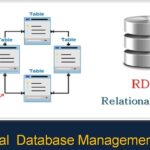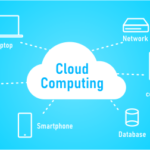Hybrid cloud is a mixed computing solution which combines private cloud services with public cloud like Amazon Web Services (AWS). Moreover, the main aim to combine these cloud is to create an automated and well manageable computing environment.

Difference in private cloud and public cloud
In hybrid cloud, public cloud handles non critical activities whereas private cloud handles critical activities. Also, public cloud providers offers high availability and scalability whereas private cloud has its own availability risks.
Moreover, applications of hybrid cloud are in healthcare industry, finance and Universities. Best hybrid cloud providers are Amazon, Microsoft, Cisco and NetApp.
Significance of Hybrid Cloud
Firstly, the hybrid architecture eliminates many of the security risks by limiting the exposure to confidential and private data to public cloud.
Secondly, this strategy provides companies with great flexibility to move workloads between cloud solutions as per needs.
Moreover, this services are powerful since it gives businesses greater control over private data. A company can store sensitive data on private cloud and simultaneously hold on to the computational resources of a public cloud.
This cloud relies on a single plane of management which is beneficial as we don’t need to manage each cloud separately.
Hybrid Cloud Architecture
This architecture includes three main components.
- IaaS Platform
- Private data center
- Adequate network connection
Firstly, it requires a public Infrastructure as a Service (IaaS) platform such as Amazon, Microsoft or Google.
Secondly, it includes private data center for computing resources such as on premises data center.
A suitable network connection for the private and public cloud environments.
Advantages of Hybrid Cloud
- Security and flexibility
- Cost savings
- Adaptability
- Risk Management
- Interoperability
- Compliance
Hybrid cloud provides security and flexibility. Public cloud provides flexible resources and private cloud provides secure resources. Moreover, it is secure since private cloud performs all the critical activities.
In addition, it is also cost effective. It helps companies to save costs for application support and infrastructure both.
Another benefit of hybrid cloud is its agility and adaptability. It is capable of adapting to the demands that each organization needs for space and memory.
Also it provides a good way for organizations to manage risks and threats. Moreover, for interoperability components of workload can run in both public as well as private environments.
Challenges
In this cloud, networking issues are a major problem as it becomes complex because of public and private cloud.
In addition, infrastructure compatibility is a major challenge. With dual levels of infrastructure, it is possible that it runs on separate stacks.
Also,it requires users and IT people that have an excellent and specific set of technical skills. Expertise for public cloud and private cloud differs on a huge amount. Moreover, there are some latency problems and complexities.
Lastly, reliability of services in this cloud depends on the cloud service providers.
Summary
In this article, we have learnt about the role of hybrid cloud and how it creates an automated environment to provide services. We have also learnt about its architecture and seen some of its major benefits and challenges.



























